Al Arabiya....
Old CIA links return to haunt Libya’s Haftar
By Mustapha Ajbaili | Al Arabiya News
Saturday, 24 May 2014
Saturday, 24 May 2014
Libya’s renegade General Khalifa Haftar is leading a military campaign against the country’s Islamist-led government and militants; however, his past life in America and old ties to the CIA are likely to be a stumbling block on his road to power.
Following his botched February coup attempt –when he appeared on television announcing the dissolution of the government only to be scoffed at by the-then Prime Minister Ali Zeidan as “ridiculous” – launched this week “Operation Dignity” to rid Libya of “terrorists” and “corrupt” officials.
He was able to bring together Qaddafi-era officers and rebel militias from the east and the west of the country to build his self-proclaimed Libyan National Army, which launched attacks on Islamist militias in Benghazi last week and stormed the Islamist-dominated parliament in the capital Tripoli.
Adel al-Dabashi, a former member of Tripoli interim security committee, told Al Arabiya News that Haftar was leading an “officers’ movement” that seeks to put an end to the lawlessness gripping the country since Qaddafi’s ouster in 2011.
Dabashi dismissed speculations that Haftar has links to foreign intelligence services. “Anyone who tries to do good for the country they describe him as an agent,” he said.
Road to power
Haftar’s march to power began decades ago when he joined a clandestine group of “Free Officers” drawn by Muammar Qaddafi from Benghazi's military academy in 1964.
Following the overthrow of King Idris in 1969, Haftar was named by coup leader Qaddafi as the chief of the so-called “Revolutionary Command Council.”
Libya’s former Foreign Minister Abdel-Rahman Shalqam wrote in a recent article that Qaddafi picked the command council members based on their absolute “loyalty and obedience” and based on their tribal affiliation.
Haftar is said to belong to the al-Furjan tribe, one of the biggest tribes in central Libya, which has a strong presence in Sirte, the last stronghold of Qaddafi, where he was captured and killed in 2011.
Haftar enjoyed the full support of Qaddafi, who gave him special powers and privileges among the “Free Officers,” wrote Shalqam, who served for decades in Qaddafi’s regime, before defecting in 2011.
“He was among the officers who used to leave their camps and without taking off their uniforms and he participated in many of military training workshops inside and outside Libya,” according to Shalqam.
Narcissistic
He had a “strong character and self-esteem to the extent of narcissism,” Shalqam added.
After cementing his grip on Libya, Qaddafi sought during the 1980s to expand his “Jamahiriya” political system beyond the borders. He thrust massive forces and military hardware into his southern neighbor, Chad. Haftar was then appointed as chief commander of the Libyan forces to lead the Toyota War against Chad.
On March 22, 1987, Chadian forces, reportedly aided by French and American intelligence, carried a surprise attack on a heavily fortified Libyan airbase, killing more than 1,200 soldiers and capturing over 400 others, including Haftar. Libya’s defeat essentially brought Qaddafi’s expansionist project to an end.
After the war Qaddafi disowned Haftar and many other officers who were held captive in Chad. The reason why he did so remains unclear.
When asked once after the war about Haftar, Qaddafi reportedly commented laughing: “He could be one of the shepherds who lost their ways looking for their camels or sheep” and ended up in Chad, according to Shalqam.
In a 1992 interview with the Washington Post, Qaddafi refused to answer a question about Haftar. “Please don't ask me such questions. It’s meaningless,” he said. But after a pause, he said: “Especially that one you mentioned because he was my son and I was like his spiritual father. I don’t want to say anything about him.”
Qaddafi’s betrayal angered Haftar and prompted him to join a foreign-based armed brigade seeking to overthrow Qaddafi. The brigade was reportedly named the Libyan National Army, the same name Haftar now gives his newly-formed anti-government military alliance.
“Haftar was an experienced soldier and it was a very big deal for us when he came over,” Ashour Shamis, a former member of the anti-Qaddafi opposition, told the Guardian.
Haftar was also seen by the CIA as a valuable recruit for America’s fight against Qaddafi, who was seen by Ronald Reagan’s administration as sponsoring international terrorism, especially following the bombing of a Berlin nightclub on April 5, 1986. The attack, reportedly carried out by Libyan agents, killed two U.S. soldiers, prompting Reagan to order the bombing of Tripoli 10 days later on April 15, 1986.
A 1996 Washington Post article says: “The Americans have tried for several years to forge a credible alternative to Qaddafi. Haftar, as a prominent army officer younger than the Libyan leader, has long been an attractive option, according to Libyan circles in London.”
When Qaddafi’s ally Idriss Déby assumed power in Chad in 1990, Haftar had to be evacuated by the CIA or else risk being handed over to Qaddafi. He was reportedly flown to Zaire, now the Democratic Republic of the Congo, and then to the United States.
Life in America
Haftar was reportedly stationed in a suburban area of Virginia, near the CIA headquarters in Langley, from where he maintained contact with anti-Qaddafi militias.
In an article published on March 26, 2011, McClatchy DCquoted a man who said to have known Haftar “all his life” as saying that the Libyan officer had “intense anti-Qaddafi feeling.”
“Khalifa has a personal grudge against Qaddafi... That was his purpose in life,” said the man identified as Abdel Salam Badr of Richmond, Virginia.
Despite his close ties with Haftar, Badr said he was unsure what Haftar did for a living but that he was focused “primarily…on helping his large family.”
McClatchy DC’s report quoted Salem al-Hasi, a Libyan activist said to be based in Georgia, as saying that Haftar once was his superior in the anti-Qaddafi army. He described him as “the most experienced person in the whole Libyan army” and has a sense of “national responsibility.”
Qaddafi’s rapprochement with the West, which culminated in a meeting between him and former British Prime Minister Tony Blair in a desert camp in 2004, appeared to have dropped him in the U.S.’s priority hit list and made his rival Haftar no longer valuable to the CIA.
Qaddafi’s dramatic policy shift encouraged Haftar to open contacts with his regime through the then Libyan ambassador to the United Nations Abuzed Dorda, foreign minister Shalqam wrote in his article.
Haftar, however, remained distrustful of Qaddafi and didn’t return to Libya. He stayed in America until 2011 to return and participate in the rebellion that ousted the former Libyan strongman.
The Guardian quoted unnamed former CIA officials as saying that Haftar had unlikely kept links with the U.S. intelligence after his return to Libya. “He is kind of a ‘fumpy’ guy,” one official said. “They tend to underestimate him. He's a pretty tough old guy and he could win, whatever winning in Libya means,” he added.
In Libya, Haftar took the third most senior position in the rebel army formed by the National Transitional Council. Abdul Fatah Younis occupied the role of commander-in-chief and Omar al-Hariri served as Younis’ Chief of Staff.
Haftar reportedly saw himself as more important than his superiors Younis and Hariri. He reportedly refused to deal with Hariri, who once was his comrade at Qaddafi’s Free Officers movement in the 1960s.
Younis was assassinated in July 2011 in mysterious circumstances and his body was dumped in an area outside of Benghazi.
Last Update: Saturday, 24 May 2014 KSA 13:35 - GMT 10:35
Chairman of Libya’s state-oil resigns
By Ahmed Elumami, Reuters | Tripoli
Friday, 23 May 2014
Friday, 23 May 2014
The chairman of Libya’s state-oil firm National Oil Corp (NOC), Nuri Berruein, has resigned, NOC spokesman Mohamed El Harari said on Friday.
He gave no reason for the resignation.
Libya’s oil sector has been crippled by 10 months of protests at major oilfields and exports ports reducing output to little over 200,000 barrels a day from 1.4 million in July when strikes started.
The protests are driven by a mix of militias, tribesmen and state employees making political and financial demands.
He gave no reason for the resignation.
Libya’s oil sector has been crippled by 10 months of protests at major oilfields and exports ports reducing output to little over 200,000 barrels a day from 1.4 million in July when strikes started.
The protests are driven by a mix of militias, tribesmen and state employees making political and financial demands.
Anti war ....
Islamist Militias Arrive in Libyan Capital, Aim to Oust Coup General
Cabinet Urges Troops to 'Steer Clear of Politics'
by Jason Ditz, May 22, 2014
Libyan General Khalifa Hifter’s hold on Tripoli, mostly solid since he seized parliament on Sunday, looks to be facing some major opposition tonight, as the first Islamist militias aligned with parliament set up positions in southern Tripoli.
 The Islamist militias include the powerful force from Misrata, which played a major role in the 2011 ouster of Moammar Gadhafi. They are being coordinated by Libya’s Chief of Military Staff, and aim to restore parliament.
The Islamist militias include the powerful force from Misrata, which played a major role in the 2011 ouster of Moammar Gadhafi. They are being coordinated by Libya’s Chief of Military Staff, and aim to restore parliament.
All of this adds up to a recipe for civil war, as Hifter’s faction has couched his anti-Islamist purge as a “war on terror,” and the Islamists don’t take kindly to the ouster of a pro-Islamist cabinet just hours after it was established on Sunday morning.
As both sides line up, there is also growing speculation about foreign intervention,particularly from Egypt’s military junta, which has long objected to the Muslim Brotherhood’s position in Libyan politics.
Libya’s cabinet, to the extent it still exists, is urging the Hifter forces to leave the capital city and “steer clear of politics,” saying they should allow the June 25 elections to take place and decide the next government.
Libya Coup General: World Must Back Our ‘War on Terror’
Urges Constitutional Council to Establish 'Crisis Govt'
by Jason Ditz, May 22, 2014
Libyan General Khalifa Hifter’s rhetoric is shifting to more closely mirror that of the US Embassy today, insisting his move is targeting “terrorists” and not just general Islamists.
 Gen. Hifter, whose self-proclaimed National Army seized parliament on Sunday, urged the international community to endorse and take part in his “war on terror,” saying parliament had turned Libya into a “state sponsor of terrorism.”
Gen. Hifter, whose self-proclaimed National Army seized parliament on Sunday, urged the international community to endorse and take part in his “war on terror,” saying parliament had turned Libya into a “state sponsor of terrorism.”
He called on the nation’s Constitutional Council to move to establish a “crisis government” that would empower him to continue operations against the Islamists, saying his military was a “safety valve” against the corrupt parliament.
Hifter also insisted the operation would continue for the foreseeable future, insisting his army would reamin on the offensive nationwide until they “rid the country of all terrorists.”
US Ambassador to Libya Defends General’s Takeover
Insists He's Just Going After Terrorists
by Jason Ditz, May 21, 2014
In a speech at the Stimson Center today, US Ambassador to Libya Deborah Jonessought to downplay the attempted military coup in Libya, arguing that Gen. Khalifa Hifter never said he “wants to be in charge,” defending it as an anti-terrorism move.
 Jones insisted the recent events were just a result of long-standing incidents, and defended Hifter’s move as not one against political Islamists, but against “terrorists” like the ones that attacked the US Consulate in Benghazi.
Jones insisted the recent events were just a result of long-standing incidents, and defended Hifter’s move as not one against political Islamists, but against “terrorists” like the ones that attacked the US Consulate in Benghazi.
That seems directly in contrast of what Gen. Hifter himself said about his “Operation Dignity,” which insisted it targeted parliament specifically because of the growing Islamist influence there, and just hours after an Islamist-backed prime minister announced his new cabinet. Prime Minister Ahmed Mateeq has refused to step down.
Jones went on to complain of the mischaracterization of Gen. Hifter’s takeover of parliament, saying he just wanted parliament to step aside because of its “failures” and that there was no other mechanism in place to oust them from power. She said Mateeq’s government was the “final straw” for Hifter, and forced his hand.
Libya Herald ....
Assistant commander of military intelligence murdered in Benghazi
By Ayman Amzein.
Benghazi, 23 May 2014:
Security agents in Benghazi yesterday found the body of Assistant Commander of Military Intelligence Hamza Al-Mahmoudi in the Gwarsha area.
A member of Saiqa Special Forces investigations, Fadl El-Hassi, said the victim had been seized during the clashes which occurred between Ansar Al-Sharia and members of the Security Directorate on 2 May.
Hassi said that Al-Mahmoudi had been shot in the head and body by his captors.
A senior member of military intelligence in Benghazi, Colonel Kamal Bazaza, was killed in December. Eight weeks ago, another member of military intelligence was seriously injured when a gang attacked him outside Hawari cemetery.
A member of the military forces also survived an assassination attempt by unidentified gunmen in Benghazi on Wednesday evening. A military spokesperson confirmed to Libya Herald that Ahmed Suleiman Al-Kori had been shot in his shoulder and his hand.
Fadia Al-Bargathi, spokesperson at Jalaa Hospital, said that Al-Kori was in a stable condition.
House of Representatives elections to be held in “second half of June” – HNEC
By Moutaz Ali:
Tripoli, 23 May 2014.
The High National Electoral Commission (HNEC) has confirmed that elections for the country’s new parliamentary body – the House of Representatives – will be held in the second half of June.
Speaking at a press conference yesterday, the head of HNEC, Emad Al-Sayeh, said a letter would be sent to the General National Congress (GNC) informing them of the exact date, which Congress could then announce formally.
The date is, however, widely-believed to be 25 June. This is the last logical day on which elections could be held and votes counted before Ramadan starts on 28 June.
Altogether, Sayeh said, 1,743 candidates had been approved and registered. The only to places where no one had registered as as a candidate was in the sub-constituencies of Jadu and Zuwara. These are Amazigh areas and the Amazigh are continuing their boycott of national elections begun in protest at their representation in the Constitutional Assembly.
The number of registered voters had last night reached 222,000, according to HNEC. This figure excludes the 1.1 million who had already registered to vote in the February elections for the Constitutional Assembly. There is now a permanent electoral register and the latter are on it.
At yesterday’s s press conference, Sayeh insisted that tHNEC was an independent institution which was not involved at any political struggle. It was solely concerned with completing the elections in the proper way, he said.
“We are independent and professional institution with a certain schedule, so what’s happening in the country has no affect on us,” HNEC spokesman Haider Badroush told the Libya Herald.
The deadline for voter registration is 29 May before the national register closes ahead of the polls. Libyans living abroad can find out how to register here.
Hundreds demonstrate in Tripoli’s Martyrs Square in “Friday of Dignity” protests
By Callum Paton.
Tripoli, 23 May 2014:
Hundreds of demonstrators flocked to Tripoli’s Martyrs Square today after Friday prayers in support of Khalifa Hafter’s “Dignity” as well as the police and the official military and to protest against the presence of militias in Libya.
In what has been dubbed the “Friday of Dignity”, the largely well spirited protestors held placards and banners bearing the word ‘Karama’ , the Arabic name for General Khalifa Hafter’s “Dignity Operation” in Benghazi. Others waved signs saying “we are all with Hifter”.
Police and military personnel at the demonstration were treated like heroes by the crowds. Some were raised on the shoulders of the protestors to chants of “the people and the army are one hand”. In the late afternoon a convoy of vehicles from the Ministry of Defence made circuits of the square to the applause of onlookers.
However, anger was directed against the General National Congress (GNC), the Central Libya Shield forces and GNC President Nuri Abu Sahmain who was described as a parasite in a particularly popular chant.
Similar protests took place today in Benghazi. Demonstrators in the capital showed their support with the beleaguered eastern city shouting “with our hearts and our blood, we will support Benghazi”.
The protests came one week after Khalifa Hafter began his “Dignity Operation” in Benghazi and five days after Sunday’s assault on the GNC. While turnout for the protest was modest it was the largest in Tripoli in recent months.
Not all protestors could be said to be supporters of General Hafter but there seemed little to divide those who wish to see a stronger police and military in Libya and those who support the eastern general.
Say what ?
Government tells unauthorised armed groups to
leave Tripoli
By Callum Paton, Ashraf Abdul Wahab and Taher Zaroog.
Tripoli/Misrata, 22 May 2014:
The Libyan Government has called on armed groups – namely Libya Central Shield, Qaaqaa and Sawaiq brigades – to leave Tripoli as the brigades squared up in the capital this evening.
Members of the Misratan-based Libya Central Shield arrived on the outskirts of Tripoli today, stationing themselves in the Salaheddin district, where clashes took place in the early hours of yesterday morning. It is not clear how many Shield troops have arrived in Tripoli but estimates range upwards from several hundred.
The government ordered Libya Central Shield, Qaaqaa and Sawaiq brigades to withdraw from the city on the grounds that their presence threatened the lives of residents and has kept them in a state of fear for the past two days. It added that the current atmosphere of political sabre-rattling threatened the country, and the existence of multiple forces on the ground could result in serious losses.
It said it would hold the General National Congress (GNC) responsible for any of Libya Central Shield’s actions, because Congress head Nuri Abu Sahmain had called on them to protect the capital. All political forces in country should unite and bear responsibility for the current national crisis, the government said.
In a statement released earlier today Libya Central Shield said it had come to Tripoli as a neutral force, with no allegiance to either the GNC or the government. The sole purpose of its presence in the capital was to protect institutions and civilians, it said, adding that it was ready to facilitate a national dialogue between all conflicting parties.
The Government also asked the GNC to show its willingness to hold prompt elections, saying these should take place no later than a month from today. It also voiced frustration that Congress had not responded to its demands to hold a second round of elections to elect a Prime Minister, pass a budget and then cease its activities.
The streets of Tripoli were quiet, but not deserted this evening, with some shops and businesses closing early.
Grand Mufti condemns Hafter’s “Operation
Dignity” as attempted coup
By Libya Herald staff.
Tripoli, 22 May 2014:
The Grand Mufti, Sheikh Sadek Al-Ghariani, has condemned Khalifa Hafter’s “Operation Dignity” in Benghazi against Ansar Al-Sharia and pro-Islamist militias as a ‘coup’.
A statement from the Dar Al Ifta’s Islamic Research and Studies Council, which he chairs, described what had happened this week in Benghazi as “horrible”. It was an attempt to impose political views by force of arms, the statement read, and it had pushed the country into chaos and disorder. It intended, the statement claimed, to thwart the Libyan state ‘s development and undermined its democracy as it moved towards electing a House of Representatives.
It was the duty of all Libyans, the statement insisted, to denounce this counter-revolutionary move.
The Dar Al-Ifta, it said, was firmly opposed to the wave of assassinations and attempted assassinations targeted against the military but it held the government responsible because of its failure to maintain security. It was also opposed to allegations being made about who was involved in the killings without “substantial eveidence” being provided.
What was needed if the country was to be spared war and chaos, the statement continued, was constructive dialogue and national consensus – based on the principles of the revolution, the unity of the country and an acceptance of peaceful transfer of power and of Sharia law.
Assassination attempt on Navy Chief of Staff
By Libya Herald staff.
Tripoli, 22 May 2014:
There was an attempt on the life of Navy Chief of Staff, Commodore Hassan Boushnak, yesterday.
He was on his way to his office Wednesday morning when he was attacked by a group of men in a black Toyota SUV.
“Yesterday, while the [Navy] Chief of Staff was on his way to work, a black car with tinted widows began to follow him and men inside just started shooting,” Navy spokesperson, Ayoub Omar Qassem, told the Libya Herald.
A stream of bullets hit the car. “The driver and the two guards were injured during the shooting, but luckily survived with minor injuries,” added Qassem.
Boushnak survived the attack with a minor injury and was able to resume his duties today.
“Apparently, a small fragment of a bullet or shattered glass injured the back of his head, but it was not serious,” Qassem explained.
It also is reported there was a similar attempt shortly afterwards to kill Colonel Mohamed Al-Suwisi, head of Tripoli National Security Directorate. He too was shot at while travelling to work.
Both men had earlier declared their support for Khalifa Hafter’s so-called “Dignity Operation” against militias in Benghazi.
“Operation Dignity” gathers support
By Libya Herald staff.
Tripoli, 21 May 2014:
The movement “Operation Dignity,” launched on Friday in Benghazi by General Khalifa Hafter which claims it wants to “cleanse” the country of terrorists armed groups – and also to remove a the General National Congress (GNC) and the government – appears to be attracting growing support. A steady flow of key figures, military units, state institutions and town councils have come out in favour, despite the operation being condemned by the government as an “attempted coup” and orders being issued for the arrest of Hafter.
One of the most prominent so far to back him is Libya’s ambassador to the UN, Ibrahim Dabbashi. He has declared his support in a statement posted on his official Facebook page. Reports that both Culture Minister Habib Al-Amin and the acting Interior Minister, Salah Mazigh, also came out in support have since been denied.
The Tobruk Airbase Staff pledged its support to the movement, stressing that “we are not staging a coup, but are rather striving to establish stability…through the peaceful transmission of power, and to fight against terrorism of all kinds.”
The head of Libya’s Air Defence Juma Al-Abani announced yesterday that the division was backing Operation Dignity. Shortly afterwards, its Tripoli headquarters was targeted late last night in an attack by heavy weaons.
The Second Security Battalion for the Protection of the Homeland, stationed in southern Libya, declared that it would “wholly join, with weapons and armaments, the National Army under the command of General Khalifa Belgasim Haftar.” The group added that it was “ready to carry out any commands to protect the country and its people”.
Haftar also now has the official backing of Benghazi’s Special Forces, several branches of the Libyan military intelligence, as well as, reportedly, the Benghazi Navy. Other forces that have declared support include those in the Jebel Nafusa and the Jebel Al-Akhdar.
Several local councils have released official statements pledging their full support of the movement, including Kufra Local Council.
“We have agreed on the need to put an end to this massacre and the crimes which are being perpetrated on a daily basis (in Benghazi), and have stressed the need to establish a Libyan army and police force,” The Revolutionaries of Kufra said in a statement. “We pledge to give them our full support in order to be able to establish stability in Libya and preserve its security and unity. The Kufra Revolutionaries are ready to sacrifice their lives for the sake of security and safety in all Libyan cities.”
Former prime minister Ali Zeidan, who has been living in Europe since he was ousted on a vote of no confidence by the GNC , has also backed General Haftar, calling on all Libyans to “support the army’s war on terrorism”.
There also appears to be a wave of popular support on the street for Hafter. The talk in Tripoli coffee bars, a barometer of public opinion, at least in the capital, in firmly in favour of the renegade general.
Ahmed Maetig asks for more time to form
government of national unity
By Moutaz Ali.
Tripoli, 22 May 2014:
Prime Minister-designate Ahmed Maetig yesterday asked the country for to more time to form a government of national unity, fit to weather the current crisis.
Speaking at a press conference yesterday Maetig said he had postponed the announcement of his government to allow more time for the political blocks to discuss recent incidents in Tripoli and Benghazi. He denied the charge that he had sought the office of prime minister for his own ends or those of his backers saying he was not looking for a title but wanted to serve his country.
Maetig said he would welcome those from any side of the political debate who wished to support his government. He added it was crucial that the new cabinet gain the acceptance of the whole country, calling on the “sons of Libya” to help build the nation.
The announcement came a day after a leaked document supposedly emerged from Maetiq’s office containing a list of names for a new crisis government. The list placed Ahmed Maetig in charge of the government’s economic portfolio on top of his duties as Prime Minister. Current Prime Minister Abdullah Al-Thinni was retains his position ad Defence Minister.
It is not known how authentic the list is.
Maetig’s decision to form a new cabinet without a second round of prime ministerial elections comes in direct conflict with advice given to the Congress by the sitting government on Monday. Following an emergency meeting Abdullah Al-Thinni’s cabinet told the General National Congress it should hold a new ballot to choose a Prime Minister, pass the 2014 budget and then cease all its activities.
Maetig stated during the press conference yesterday that it was for Congress to decide its position on fresh prime ministerial elections, not him.
A group of 21 Congress members announced on Tuesday in an open letter that they supported Thinni’s decision. They said Congress had failed to listen to the voices of the Libyan people and that it was in the interest of the entire country that the GNC stepdown.
Maetig said his government would fully support planned elections to the House of Representatives and left with a parting shot at General Khalifa Hafter saying families in the east of the country already knew how bad military regimes could be.
HNEC “to announce 25 June election date” for
House of Representatives elections today: HNEC
official
By Moutaz Ali.
Tripoli, 22 May 2014:
Elections for the House of Representatives to replace the General National Congress will take place in five weeks’ time, a senior official at the Higher National Elections Commission has told the Libya Herald.
“The 25 June is confirmed as date of the House of Representatives election,” said the official, who did not want to be named. “Ignore all other sources. HNEC will announce the date formally tomorrow,” he stated last night.
There has been confusion as to both the date and who originally decided on it.
On Tuesday, it was reported by the Libya news agency Lana that the President of Congress, Nuri Abu Sahmain, had disclosed that he had been told by the head of HNEC, Emad Al-Sayah, that the date for the poll would be 25 June. However, HNEC had earlier said that elections to a new legislature would be logistically impossible before August. HNEC then said 25 June was just one of a number of dates it was considering, and making it clear that it had not made any declaration about the date.
Various reports stated that the decision had came from Congress on Tuesday. But Congress did not officially meet that day because it was inquorate.
The decision is for HNEC to make.
For its part, the government has said it wants the elections by 15 August.
Oil industry and Trade suffering even more.....
Sirte Oil Company stops operations
By Jamal Adel. Tripoli, 22 May 22, 2014: Protesters stormed the Sirte Oil Company (SOC) headquarters in Brega yesterday, forcing the company to stop operations. …
Argentine trade delegation postpones visit
By Libya Herald staff. Tripoli, 22 May 2104: An Argentinian trade delegation of businessmen and representatives of Argentinian companies has postponed a scheduled trip to Libya…
Maintenance underway at Sarir power station
By Jamal Adel. Tripoli, 22 May 2014: In a bid to keep electricity flowing in the south of the country, maintenance operations are now underway on turbines at the Sarir Power Station.…

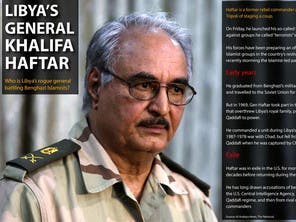
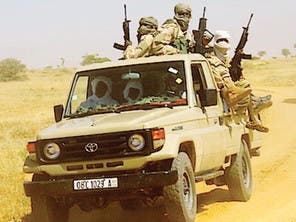
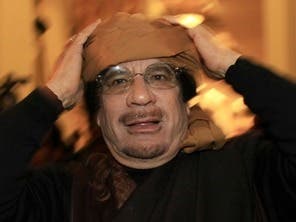
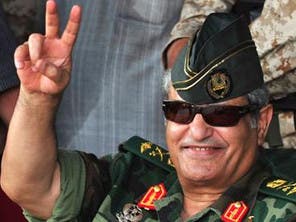
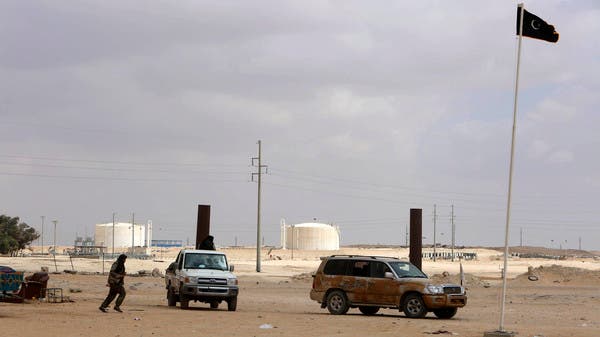
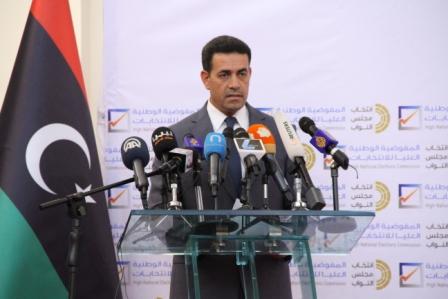
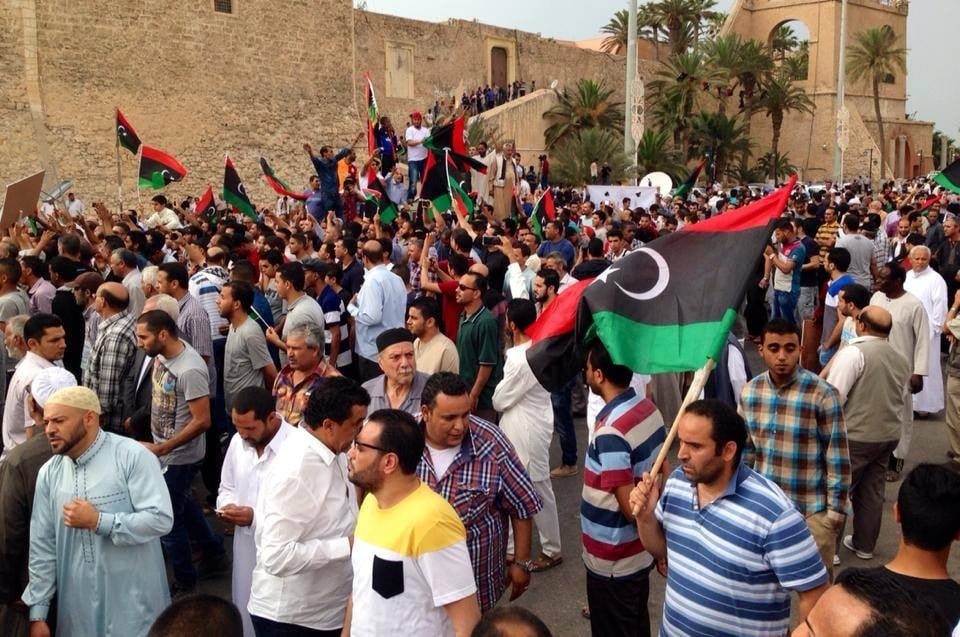
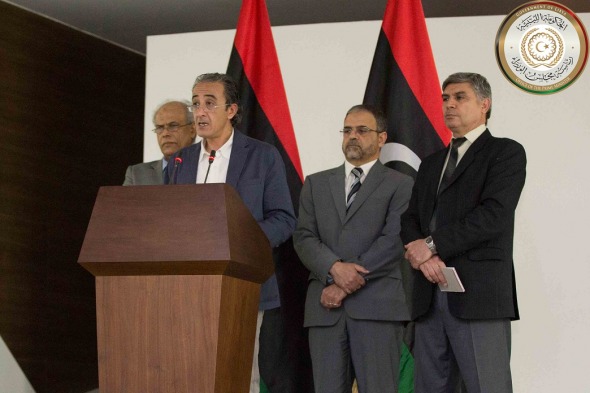


No comments:
Post a Comment